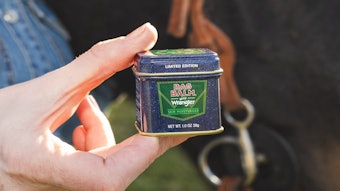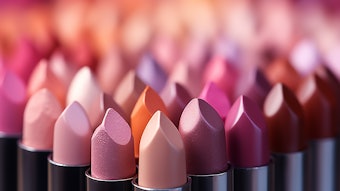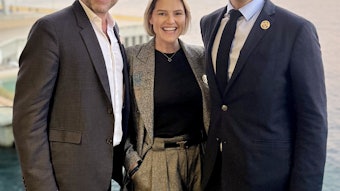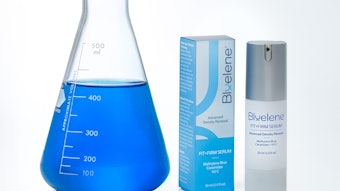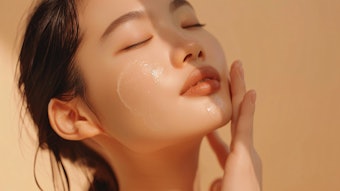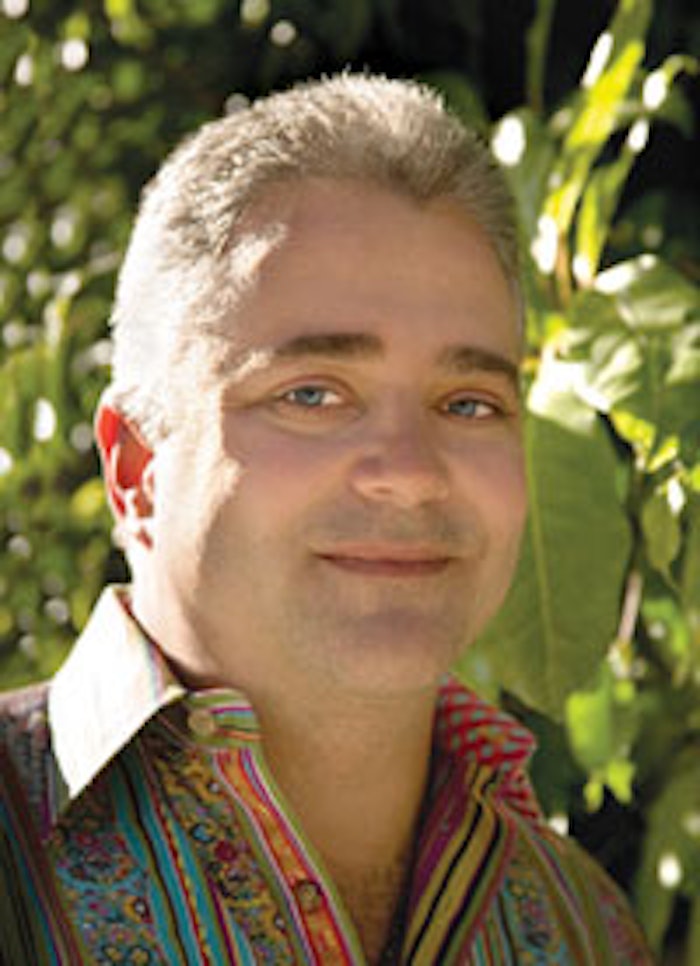
Andrew H. Jacobson was president of Westbrae Natural in 1997 when the company was purchased by The Hain Food Group. He came on board with Hain as general manager of nondairy products, and was named general manager of the Hain Celestial Whole Body Care Division about the time Hain purchased Jason Natural Products in mid-2004, marking its entry into the personal care category.
Today, Jacobson is president, personal care, for The Hain Celestial Group, and has been in the thick of the action as the company followed up the Jason Natural purchase with the acquisition of Zia Natural Skin Care in 2005, then Para Laboratories and its Queen Helene brand in early 2006, and Avalon Natural Products—announced earlier this year. It all adds up to exceeding Hain’s objective of building personal care into a $100 million business.
Yet, while he has been on the inside of all these major transactions, Jacobson’s introduction to the world of natural products came long before his current involvement with The Hain Celestial Group.
“I like to think of myself as a product of the industry,” said Jacobson. “My family ran a chain of natural foods stores, and I grew up in them.” In fact, his family’s involvement in natural foods retailing ranged from owning a Country Health store in North Miami Beach to being part of a group that owned as many as 126 natural food stores.
“If you excuse the pun, my going into this business is, well, a natural. When something has been in your life for so long and is something you truly believe, you develop a passion for it.” Today, Jacobson has a family of his own, and he said they try to eat or live with the best quality products that they can, including skin care. It’s the same mind set he takes to work with him every day. “For me, following the principle of making the most efficacious products with the very best plant-based and naturally derived ingredients, while respecting the environment and fulfilling a consumer need, is just the way things should be,” he said, echoing the original philosophy of the organic movement that stood on a balanced platform of local ingredients and sustainable practices among others—including being pesticide- and hormone-free.
His is a powerful statement. At a time when the notion and practice of sustainability are being pushed into the mainstream beauty industry by various forces, companies such as The Hain Celestial Group have been immersed in it for many years. In Jacobson’s view, though, they just don’t get a lot of credit for what they do. He said that if one were to look historically at the brands at Hain, one would see the results of expanding organic farming in support of the family farmer and sustainable organic agriculture.
Jacobson believes that by making a strong investment in its brands, The Hain Celestial Group enables those brands to live up to their original mission. “Hain doesn’t get a lot of credit about the environment or blow its own horn. At Hain, we really do invest in the brands, and we invest in the industry. Natural products are important to all of us. It is always going to be the place where the newest products will be found,” he said.
It is also a “place” that is getting a lot of attention from consumers. Euromonitor put the 2006 global market for natural cosmetics at $3.9 billion, and forecast growth of 9% annually through 2008. In a Euromonitor article from July 2006, the research firm pointed out, “While ‘natural’ is appearing on product labels with increasing frequency, there is no agreement about how the term should be defined and, therefore, what products can legitimately use it.” The article continues, “Using food-grade ingredients circumvents potential consumer skepticism about a product’s naturalness, and also enables manufacturers to take advantage of the known health and beauty benefits of fruits and vegetables.” Jacobson agrees that much of the advancement in the naturals market has come from the food side.
In his view, the natural food industry led the way in developing enforceable organic standards. As importantly, food capitalized on the consumers who read labels and truly cared what they put in their body. “The personal care side is now starting to experience label-readers trying to define ingredient standards, and we are capitalizing on the consumer who cares what goes on their body,” said Jacobson. “Like food, personal care products draw ingredients from nature, making products that are efficacious and safe for the new consumer.”
Jacobson made the switch from food to personal care at Hain, and one might assume that his work on the food side informs his current work on personal care. Yet, from his perspective, he was familiar with the personal care category from his family’s stores and from eight years spent working for a distributor.
“I’ve sold Jason for a lot of years,” he said. “I don’t necessarily know if it is work in food or work in an industry (that informs his efforts today). A lot of food products were created not just out of a good idea, but as a mirror of products with ingredients that are different than those we would find acceptable within our industry and lifestyle.”
He pointed out that there are a lot of ingredients in food that act only as fillers or colors. “Our thing is we try to use ingredients that are functional and good for you and really need to be in the product for the product. That’s something that we’ve done in food; that we’re doing in personal care today,” said Jacobson.
The Certification Challenge
Perhaps the single most important concern facing the organic personal care market today is the issue of natural and organic product certification. “Certification and the development of defined standards governing natural and organic personal care are critical to the expansion of the category,” said Jacobson. “Currently, the lack of standards is confusing to consumers and jeopardizes the value the consumer places on the words ‘natural’ and ‘organic’ associated with beauty products.”
Today, organics are regulated by the USDA; personal care falls under the FDA. At this time, the USDA has authorized the use of its Organic Seal on personal care products based on a review of the ingredients, although this has been challenged in court. Whether the USDA will continue to participate in the regulation of the personal care industry is not known. Organic food regulations must be modified for personal care products since there are certain characteristics and manufacturing processes that are unique to the personal care industry. In addition, a new symbol should be developed to indicate the differences in regulations. Further, it has not been determined how consumers will react to an identical seal used on both food and personal products.
Spreading the Message
The acquisition of Para Laboratories, Inc. in early 2006 brought Queen Helene, Batherapy and Footherapy brands to the personal care business. Jacobson sees it as a great acquisition for the company, providing the opportunity to develop natural products that meet the needs of ethnic consumers while also expanding its message to a larger audience. Taking the products and their message to a broader audience is not without its challenges, but, according to Jacobson, the message is consistent whether they are communicating to a long-time natural consumer or a mass-market consumer. That message is: “We create safe, effective natural products.” What differs is the delivery of the message because, as Jacobson explains, mass consumers require additional information about why natural brands don’t use certain ingredients and how natural personal care is an integral part of a healthy lifestyle. “As consumers become concerned about what they put in their body, they begin to seek out safe and effective products to put on their body,” he said.
According to Jacobson, there are essentially three challenges to overcome in convincing a mass consumer to try a natural brand: price, effectiveness and safety. Here’s how Jacobson answers those challenges: Price. Natural products are more expensive due to the types of ingredients. The Hain Celestial Group evaluates ingredients based on their source, how they have been harvested, ensuring they are not animal-derived or tested on animals.
Effectiveness. In the mass market, there is a perception that natural products are not as effective as mass brands. Through trial and sampling programs offered at mass retailers combined with outreach to national consumer publications, this perception is easily overcome. The Hain Celestial Group offers these same programs to its natural retailers, as sampling is a key selling vehicle for any consumer. Advances in science and clinical testing have proven the functionality and effectiveness of many natural extracts, providing scientific support for marketing claims. Safety. Many mass consumers are concerned that natural products have a shorter shelf life; thus less safe. This is incorrect. Natural products may have less harsh preservatives and use packaging (tubes, airless, pumps) to reduce the risk of contamination and maintain the integrity of the product.
“Mass retailers must communicate and help educate consumers about what makes natural products different. This includes the specific ingredients that are not included, the effectiveness of natural products and, when appropriate, the brand’s social consciousness,” said Jacobson.
“Consumer resistance is more likely when the mass retailer does not show a firm commitment to the natural category,” he continued. “Six or eight natural SKUs in the midst of a conventional set does not communicate the appropriate level of commitment to the category (to entice) a consumer to spend more money for a natural product.”
Jacobson clearly understands the nature of a firm commitment to the category, having grown up in it and made a career of it. So, what’s next on his agenda? “Like anything else, I think it’s not what Andy wants. It’s the continuation of what Hain is doing. We are trying to create a healthy way of life, and I think that having the opportunity to be part of that vision, and being able to contribute, is satisfying.”
Naturally.



